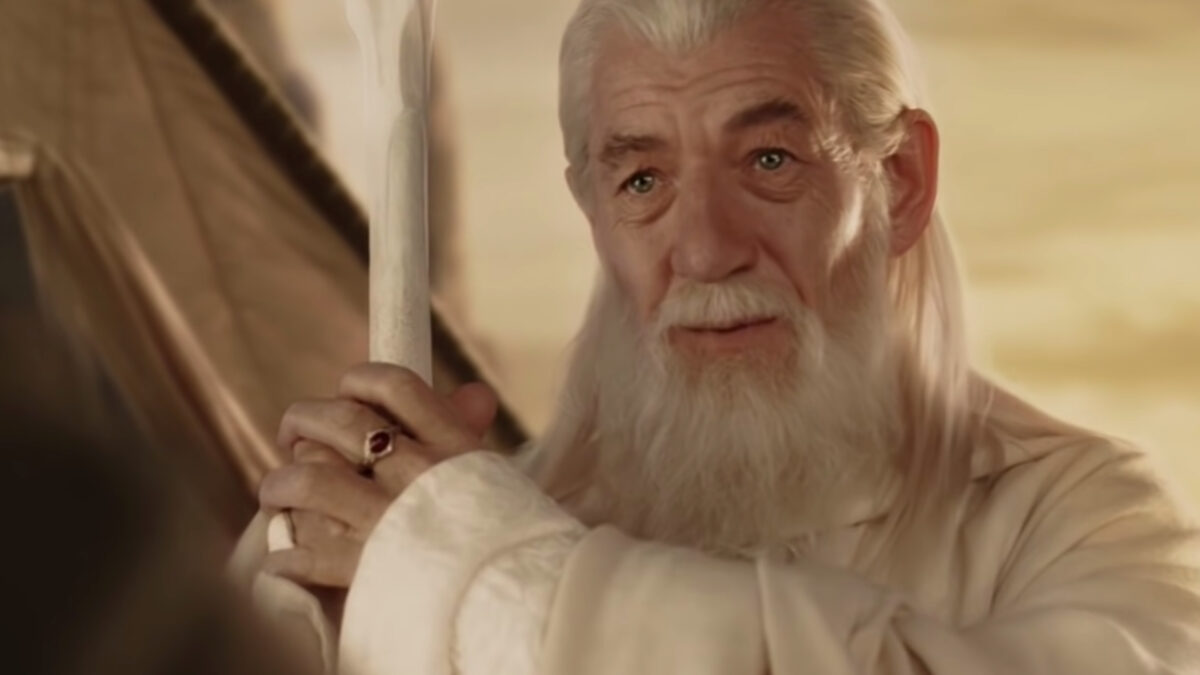Gandalf is one of the most enigmatic figures in J.R.R. Tolkien’s The Lord of the Rings, but the character’s mythological origins have always been more humble than many would presume.
The iconic wizard and main protagonist has gone by many names over his 2,000 years of physical existence in Middle-earth. The Elves came to call him Mithrandir, “the Grey Pilgrim,” while the Dwarves gave him the name Tharkûn, which basically translates to “staff man.” And it was the men of Dúnedain, rangers from the fallen kingdoms of Men, who came to call him Gandalf.
But before there was a Middle-earth, in the Timeless Halls of Eru — the mono creator that gave life to the fictional universe — Gandalf was an Ainur known as Olórin, or “dream.” The Ainur were angelic beings who served Eru’s will and helped shape Middle-earth. More specifically, though, Gandalf was created in the image of the Maiar, lesser angels who served the more blessed of the Ainur, the Valar.
What is a Maia?
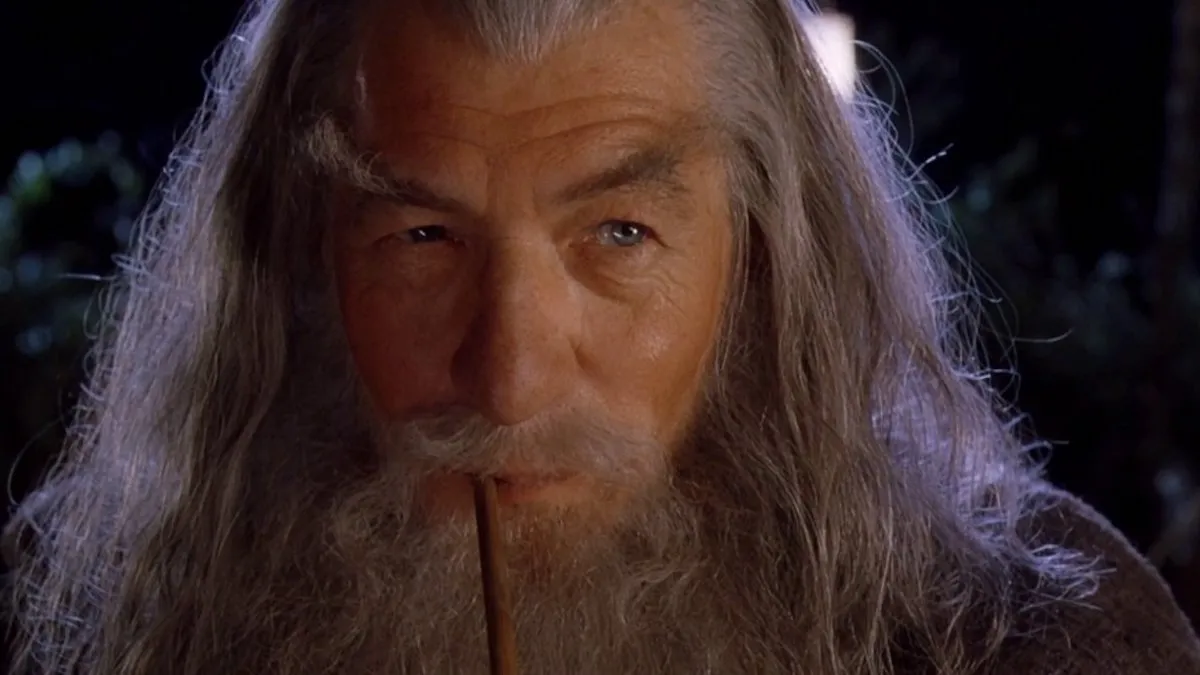
Maiar, much like their kin Valar, were primordial spirits that Eru wove into existence when there was nothing else. Though unlike Valar, who were the most powerful of angels that the creator had brought into existence, the Maiar each served under the wings of one of the Valar. They were numerous, though many are not named in the Legendarium.
Perhaps the most significant Maia is Sauron the Deceiver himself, the dark lord who picked up Morgoth’s work after his master was cast out through the Doors of Night. Barring him, we also have the five Wizards, known as the Istari, who came to Middle-earth at some point in the Third Age to combat his resurgent threat. These were Gandalf, Saruman, Radagast, and the two blue sorcerers, Alatar and Pallando. Oh, and also, all the Balrogs that Morgoth fielded in the First Age were corrupted by Maiar, so it could be argued that Eru created more than a few dozen of them at the dawn of time.
Much like the rest of the Ainur, the Maiar were powerful, with abilities to shape and influence the outside world to their liking. Of course, that power was limited when compared to the Valar — whom they served — but even then, abusing that power would almost certainly buy them a ticket to Eru’s secret naughty list, and they’d risk losing it completely.
Was Gandalf an Istari?
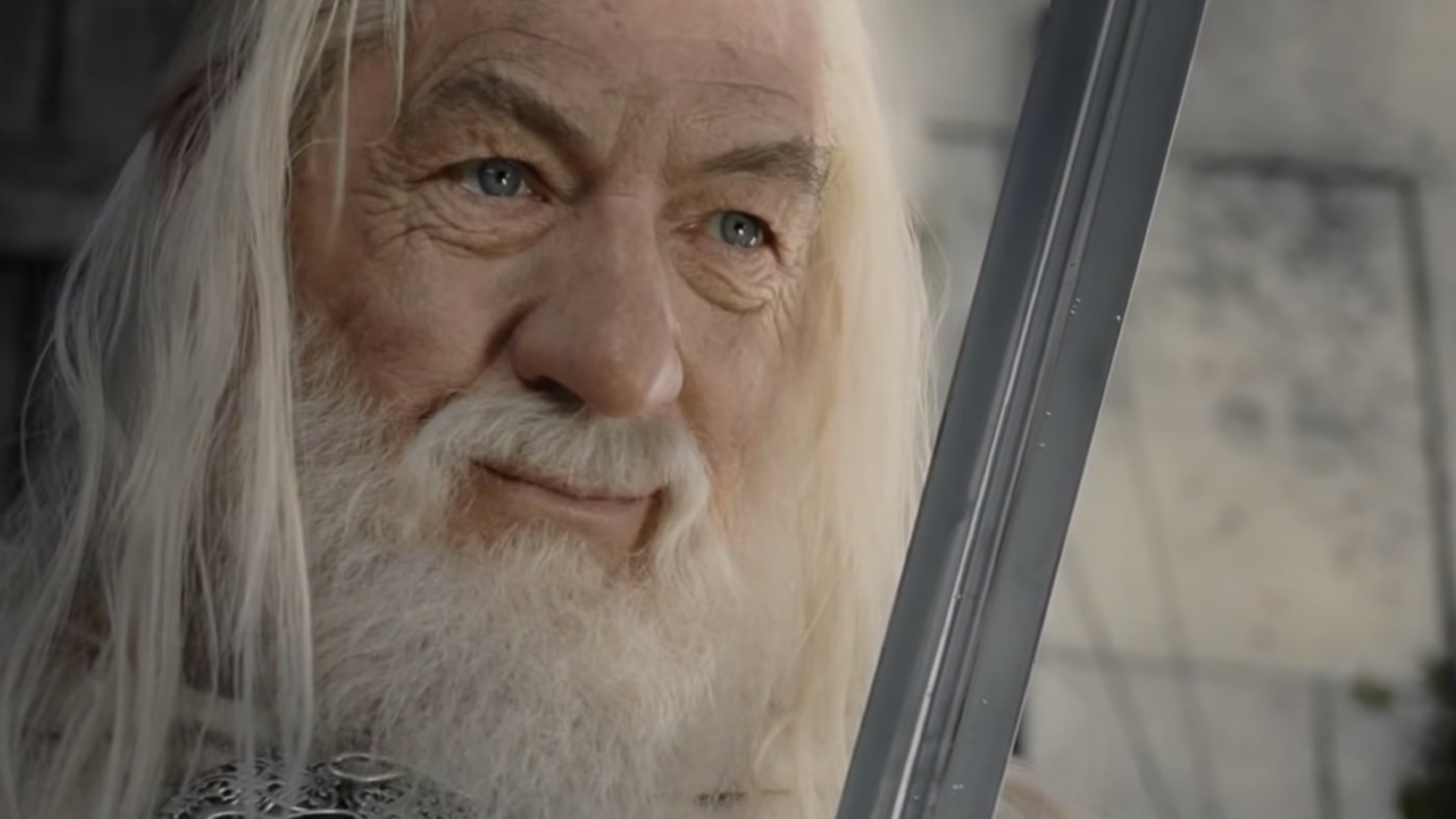
When Manwë, the king of the Valar, found out that Sauron was stirring again, he summoned a council to decide what to do with Morgoth’s unruly lieutenant. The Valar ultimately decided to send emissaries to the other side of the ocean to assure the Free Peoples of Middle-earth that Valinor hasn’t forsaken them.
And so it was that in the first millennium of the Third Age, several Maiar came to Middle-earth in the guise of Wizards – or Istari, short for Heren Istarion which translates to “Order of Wizards.” Among them were Gandalf, or Olórin as he was known to the Valar, who represented Manwë himself.
While Saruman decided to choose a place in the east to settle down in one place, Gandalf continued to roam Middle-earth and meet different people, working up a reputation even among the rulers of each kingdom. Much like his counterparts, Gandalf also chose the guise of an old man, further cementing his purpose as a counselor — and not a sovereign — among the Free Peoples.
Why didn’t Gandalf simply challenge Sauron to a one-on-one?
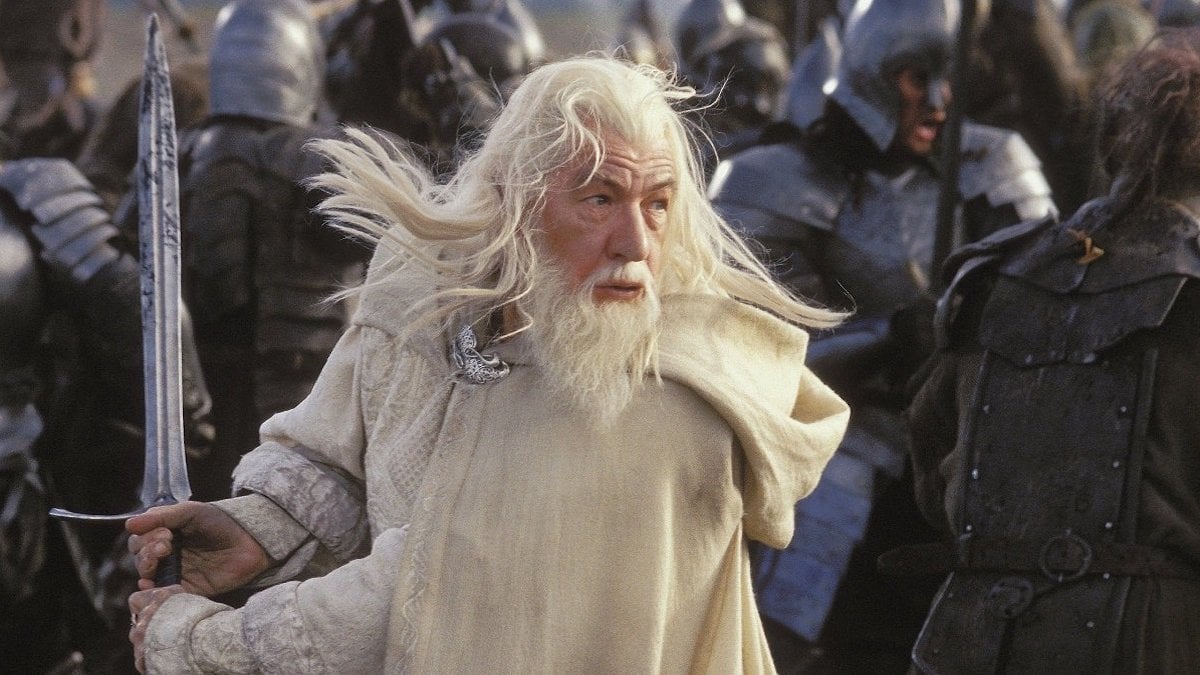
As mentioned earlier, the Maiar are extremely powerful. Think about all the terror that Sauron unleashed in the Second and Third Ages, and you will begin to grasp a measure of the magic they can wield in Arda. And yet, despite all of that inherent prowess, Gandalf refused to openly use his powers to influence events or sway their results to the side of the good guys — unlike Saruman who essentially forsook his tasks and utilized the full extent of his abilities to create the armies of Isengard.
At one point in the books, Gandalf suggests that he’s too weak to challenge Sauron directly, but considering the fact that the sinister Dark Lord is the overarching villain of the series — capable of doing Eru knows what — even the very implication that someone like Gandalf could hold his own against Sauron is very telling.
J.R.R. Tolkien addresses this issue in The Unfinished Tales. According to that book, when the Valar sent the Istari to Middle-earth, they purposefully prohibited them from openly using their powers to influence events or even subjugate the Free Peoples to their will. Here’s an excerpt from the companion novel that explains their reasoning in full:
“And this the Valar did, desiring to amend the errors of old, especially that they had attempted to guard and seclude the Eldar by their own might and glory fully revealed; whereas now their emissaries were forbidden to reveal themselves in forms of majesty, or to seek to rule the wills of Men and Elves by open display of power, but coming in shapes weak and humble were bidden to advise and persuade Men and Elves to good, and to seek to unite in love and understanding all those whom Sauron, should he come again, would endeavour to dominate and corrupt.”
In essence, it was all about the Free Peoples themselves willfully choosing to stand up against Sauron and securing a brighter future for Middle-earth. The only wizard to comply with that demand, or at least make the effort — since Radagast and the two Blue Wizards were missing in action — was our very own Gandalf Greyhame.
Will Gandalf appear in The Rings of Power?
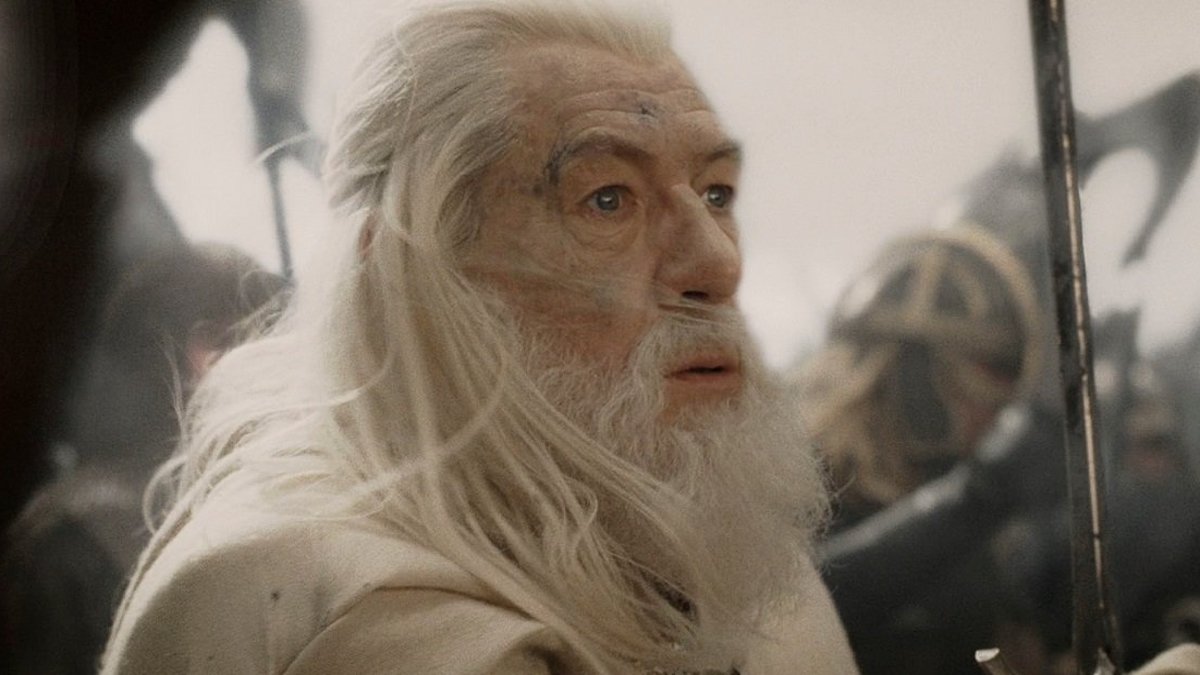
From a canonical standpoint, the earliest sighting of Gandalf was in the Third Age, and since The Rings of Power takes place in the late Second Age, it’s highly unlikely for the wise Olórin to show up.
At the same time, Gandalf is one of the most popular characters in all of literature and even pop culture, so the folks at Amazon Studios may have been tempted to resurrect him for this outing. Even Sir Ian McKellen, who portrayed the character in Peter Jackson’s The Lord of the Rings trilogy, has expressed interest in a return, so the ball, as it were, is in Amazon’s court now.
Whether or not the White Wizard turns out to be a part of the ensemble, The Rings of Power is making its way to Prime Video on Sep. 1 of this year.

